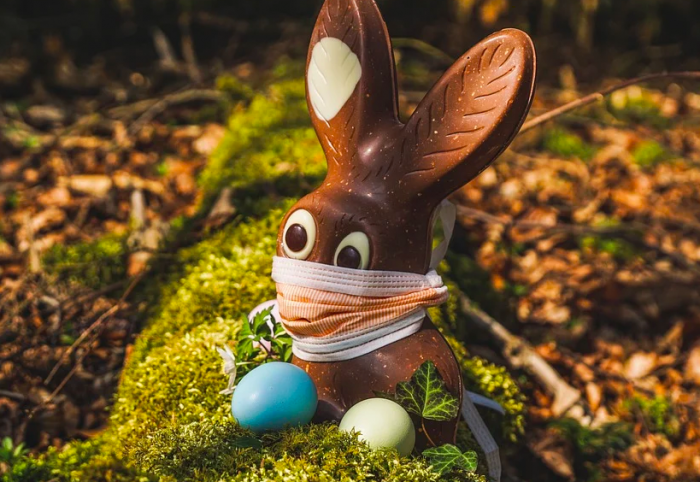Read: Elephant’s Continually-updating Coronavirus Diary. ~ Waylon
~
It’s been almost one month since the quarantine.
Each week has served up a new set of guidelines, most recently face masks in public places.
I’d expect an apocalyptic world, but I confess I’ve been surprised. Bostonians have remarkable grit and salty friendliness (not a paradox if you know this place)—and we’ve managed to remain human.
“It’s been hahd,” said the barista at my local coffee shop. “My dah-duh says she doesn’t wanna do her homework, so we don’t do it! Her teacher isn’t worried; she knows she’s a smaht kid.”
I nod, watching the barista pick up an iPad. “Okay, hun. An extra dry cappuccino, right?”
Thank God for this place.
On my walk home, I pass the South Boston Catholic Academy. I like seeing their manicured lawns and flowers beds; the art displayed through classroom windows; the flyers posted in the entryway. “Faith, Family Spirit, and Academic Excellence” says their plaque, and it always makes me smile.
But today I notice something’s changed. Someone’s decorated the school for Easter. There are pastel eggs dangling from trees and sparkly eggs hidden in the flower beds. A huge “Happy Easter” sign is plastered against the front door.
That we should be “happy” during a pandemic seems ridiculous. It feels like denial of what’s happening around the globe. People are dying and losing their jobs. Streets, churches, and parks are stripped of human life—and all that remains are cars and fire hydrants cluttering the landscape. Somehow Easter feels like a perversity during these dark times.
My walk home stirs up memories of my childhood Easters. I remember dressing up in lace and going to mass. Vaulted ceilings and stained-glass windows. My grandmother holding a rosary and songs that droned on for hours. I’d look around the congregation, most people looking bored and a few guilty of whatever sins they’d committed.
I remember mixed feelings of reverence and joy—a vague sense that crucifixion was bad, but ascension was good—and afterward, we’d walk into the sunlight. The priest was there waiting for us, and with dry hands he’d grab mine and say, “Peace be with you.”
Then my family members would stand in the parking lot deciding where to go for lunch. I’d watch shadows travel across the sidewalk as people walked by.
At some point, someone would hand me a chocolate bunny.
They tried to trick me with candy for Easter, but I knew, deep down, that there was something serious about this day. Someone had died to grant me life. There was a certain sorrow that preceded the celebration.
Even now, I don’t like seeing a bloody Christ on a crucifix. It’s too raw. It’s the part of faith that’s the ugliest—the stage before we witness the miracle.
Today, I’m pondering my own faith as I walk into my apartment. I’m wondering what happened to that little girl at mass. Did she hold on to her faith, or did she just hold on to her love of chocolate?
I decide to play a game of virtual reality to find out. The game comes from the Teachings of Abraham (law of attraction), and it’s simple: just imagine a scene that makes you feel good.
So I place myself in church again, and I imagine that I’m seated in a pew during Easter mass. The priest is standing behind the pulpit, only it’s not an ordained Catholic priest—it’s Abraham.
“Open your books to Part II, Example 1,” he says.
(We, the congregation, obediently comply.)
“Disease is the Law of Attraction’s response to resistance. Well-Being is the Law of Attraction’s response to allowing…Feel the difference between the idea of ‘beating the illness’ and that of ‘allowing the wellness.’ What have you resisted and what have you allowed? Are you resisting a virus or are you allowing for its resolution?”
(Someone in the congregation shouts the death toll.)
“Yes, we don’t deny the deaths or the red circles covering maps of the world,” says Father Abraham.
“Make no mistake, this is your reality. But you, as physical beings, tend to focus more on what you don’t want than what you do want, and by doing so, your thoughts are pointed upstream.
I ask you, friends, which is stronger: your fear or your faith? Are you focused on everything you’re afraid could happen, or does your faith in wellness overpower your fear?”
(We uncomfortably shift in our seats.)
“Because faith means letting someone else—or something else—take over. Faith means relinquishing the future into the clutches of an unseen force—and that’s a terrifying concept. How do we trust, how do we know, how can we believe that the outcome will deliver a brighter day? We don’t. That’s why it’s called faith.”
My game of virtual reality concludes.
I sit and think about Abraham’s imaginary sermon. I wonder at the simplicity of his message—that faith knows no difference between resurrection or vaccination, only that it believes there’s a miracle on the other side of death.
Abraham’s tenet, “Ask and it is given,” is ringing in my head, as I wonder where the hell is the miracle. If I’ve asked for it and allowed it in, then where is it?
It doesn’t take me long to hear the answer.
Miracle(s)—plural!—are everywhere if I go looking for them, and I don’t have to play virtual reality to see them.
That the sun should rise over the ocean each morning and with perfect predictability is a miracle; that toddlers should rejoice in feeding pigeons and running in the park is a miracle; that people still procreate is a miracle; that we can mail gifts across thousands of miles is a miracle; that our faith in the future is stronger than our fear of it is a miracle.
I believe this Easter is not drowned by the pandemic but adorned with miracles. It’s still a day for hope in a time of despair. I have faith that good news is coming, just as I have faith in the return of chocolate bunnies.
~
Relephant:
~







Read 1 comment and reply